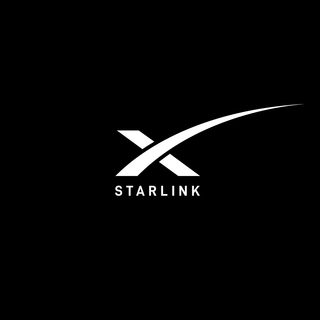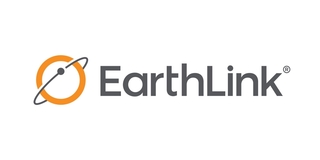Best Business Internet Services
As a business owner, having reliable internet is crucial for your company's success. From conducting online transactions and communicating with clients to accessing cloud-based software and completing daily tasks, the internet is an essential tool for businesses of all sizes. With so many options available, it can be overwhelming to determine which internet service provider (ISP) best fits your needs.
When selecting a business internet service, several key factors must be considered. Data caps, bundle options, security, speeds, prices, contract length and termination fees are all important factors that can impact your decision. It's also important to consider the level of customer support offered by the ISP, the availability of the service in your area and the potential for future expansion. To help you make an informed decision, we have compiled a list of the best internet providers based on these criteria. Whether you are a small startup or a large corporation, our list has options to meet the needs of every business.
Our Top Picks for the Best Business Internet Services
Best Business Internet Services Reviews
Why we chose it: Verizon business plans offer a blend of speed and affordability, with a 200Mbps plan for only $69. This makes it a good choice for small businesses that need fast and reliable internet but don’t want to break the bank getting the highest speeds out there.
- Reliable near-gigabit speeds
- Good value for the speeds advertised
- Good customer service
- 12-month contracts which renew automatically
- Only available in 10 states
Verizon offers business internet plans with speeds ranging from 10Mbps to 940Mbps, so most businesses will be able to find a plan that is a good fit for them. Businesses that do not work with online video streaming or large file uploads probably won’t need anything faster than what Verizon provides.
Business owners often need their issues and complaints to be taken care of quickly and without hassle. Some online reviews rate Verizon's business internet customer service higher than the competition. Verizon also offers customers bundle deals with their business phone services and Verizon cloud storage.
Unfortunately, Verizon only offers businesses 12-month contracts with auto-renewal. If a small business owner forgets to cancel before the auto-renewal date, they may be locked into another year of service and have to pay the full amount for that period. This can be a large inconvenience and expense for a small business owner who is already busy.
Why we chose it: For rural businesses that need access to high-speed internet, Starlink offers the quickest possible speeds. It’s currently the fastest satellite internet provider available in the U.S.
- Provides high speeds in areas with no fiber infrastructure
- Receivers can be moved to another location without any extra cost or hassle
- Expensive equipment and setup fees
- Monthly fees are more expensive than the competition
While most high-speed business internet is delivered through fiber optic cables, rural businesses may be located where this infrastructure hasn't been laid down. Starlink provides satellite internet to places where there is no internet infrastructure at all. Unfortunately, Starlink for business is expensive, with an initial cost of $2,500 for the necessary hardware and a monthly payment of $500. Satellite speeds are also lower than fiber, with a top speed of only 350Mbps, and can be affected by negative atmospheric conditions. However, for locations with no internet infrastructure at all, Starlink can still be a good option.
Customers can set up a receiver antenna wherever they are and connect to the internet through Starlink’s satellites. A Starlink satellite receiver can also be easily moved to another location and set up again since it does not need to be connected to any wiring other than power.
Why we chose it: Frontier’s fiber plans cost almost half as much as competitors at the same speeds. This makes Frontier a great internet service provider for those who want a fast and cheap business internet solution.
- Some of the most affordable high-speed plans
- Symmetric speeds for uploads and downloads
- Free installation
- A reputation of poor customer service
- Complaints of high latency
Frontier's fiber internet speeds are advertised as symmetric, meaning you get the same speeds for both uploads and downloads. This can be important for businesses that need to upload large amounts of data regularly. Their plans are also highly affordable, with their fastest 2-gigabit plan costing only $155 per month.
However, customer reviews for Frontier’s internet service are mixed. Some customers complain of poor customer service and high latency. High latency means a longer delay between a request and the desired effect. This can be a deal-breaker for things like online stock trading or video calls, where delays can cause serious issues.
Access to high-speed fiber plans is also only available in 17 states, so check whether the specific plan you want is available in your area.
Why we chose it: If you need the fastest possible speeds from your business internet, then AT&T Business is the obvious option. AT&T offers business internet plans with up to 5Gbps, up to five times faster than the offerings from most competitors.
- Speeds up to 5Gbps
- Good customer service
- Can be expensive
- Fastest plans have limited availability
AT&T’s business internet is currently the fastest out of all the competition. If you have a business where fast uploads are a priority, such as a video content production business, then high-speed symmetrical plans are also available. Unfortunately, their fastest fiber internet plan is expensive at $395 per month.
AT&T offers customers several add-ons. Businesses can pay extra to bundle AT&T's business phone service, which includes video calls and conferencing. Add-ons are also available for cloud storage and cybersecurity protection.
Fiber optic internet is still a relatively new technology, and expanding a high-speed network can be costly for service providers. Unfortunately, this means that, for now, AT&T's high-speed fiber internet is usually only available in large metropolitan areas.
AT&T Business has a reputation for good customer service. It was ranked number one in customer satisfaction in J.D. Power’s 2022 U.S. Business Wireline Satisfaction Study.
Why we chose it: Business owners report that customer representatives are proactive and responsive, and they like the option to request a dedicated account representative.
- Free 24/7 tech support
- 30-day trial period
- 24-month contract
- Slower speeds than some of the competition
Comcast has had a negative reputation in the U.S. in the past, but Comcast Business has mostly good reviews online. Customers often note the company’s 24/7 tech support. Business owners have the option to request a dedicated account rep. Comcast Business plans do not charge for installation and offer a 30-day trial period.
Comcast Business is not the cheapest internet provider on the block. Its 750Mbps plan costs $250, the same amount as a 1000Mbps plan at Earthlink. There are three plans available — a 50Mbps plan, a 250Mbps plan, and a 750Mbps plan. Unfortunately, this means that Comcast's top plan is still slower than many competitors, which reach speeds between 1000Mbps and 5000Mbps. However, if you don't need the fastest speeds, Comcast can provide decent value with good customer service.
Why we chose it: EarthLink is an internet service provider with consistently high customer satisfaction and good review scores.
- High customer satisfaction
- Affordable high-speed plans
- Limited coverage
- 12-month contract
While EarthLink may be less known than other ISPs, this does not mean it provides worse service. Reviewers say EarthLink consistently offers good value and customer support. In 2021, an independent survey of ISP online customers ranked EarthLink as the top provider for overall customer satisfaction. The survey measured four major categories: price, speed, reliability and customer service, with EarthLink coming in first in all categories. This makes EarthLink a solid pick for businesses in locations where its high-speed plans are available.
If your internet connection is important to the day-to-day operation of your business, then choosing a provider with high customer satisfaction can save you from stress in the future. It can also save you money since any day you can't work because of internet troubles could be a day where you pay expenses but make no revenue.
EarthLink's coverage lags behind other, larger ISPs. High-speed fiber plans are currently only available in 21 states. However, its business plans range in speed from 25Mbps to 5Gbps, so there are plenty of options to choose from based on your company's needs. After the first year's contract, customers can switch to a month-to-month plan, so if your business is experiencing growth, you have some flexibility while you decide your next set of needs.
Why we chose it: All Spectrum plans are no-contract, which makes them a great option for businesses that aren’t sure whether they will need to switch providers or upgrade their plans in the near future.
- No-contract plans
- Good value for near-gigabit plans
- Wide availability
- Customer service has mixed reviews
Spectrum offers business customers a choice between three possible internet speeds: 200Mbps, 400Mbps and 940Mbps. Spectrum offers faster speeds for enterprise customers, but availability and pricing may vary depending on location.
Most internet service providers have limited coverage for their high-speed plans. However, Spectrum offers wider coverage than many others, so there's a good chance it may be available in your area.
Unfortunately, Spectrum’s business services receive mixed reviews. Customers sometimes complain about the quality of customer service and report problems with canceling internet plans.
Other Companies We Considered
Viasat
- Provides internet to areas with no internet infrastructure
- Cheaper than Starlink
- Slower speeds than Starlink
- 24-month contract
If you need a satellite internet connection and the higher speeds provided by Starlink are not worth the additional cost for your business, then Viasat can be a good alternative. Download speeds range from 35Mbps to 100Mbps. Unfortunately, most Viasat plans come with 24-month contracts, while Starlink plans are contract-free.
Cox Business
- Promotional prices for the first year
- Up to 1Gbps
- 1.25TB data cap on all plans
- No fiber internet available
Cox offers a Gigablast plan which promises up to 1Gbps internet delivered through copper coaxial cables. This means it can be a fast and cheap internet option for homes not connected to any fiber networks. However, Cox limits all plans with a 1.25TB data cap.
CenturyLink Business
- Affordable near-gigabit plans
- No data caps
- Only available in 20 states
- Fiber only available in certain cities
CenturyLink plans can be some of the most affordable near-gigabit plans out there — if you live in an area where they are available. Plans are contract-free, meaning you can switch to another provider or cancel when you move without any penalties.
Rise Broadband Business
- Available in rural areas, where other providers are unavailable
- Maximum speeds are only 100Mbps
- Data caps for cheaper plans
Rise Broadband Business may be one of the only internet providers in many rural areas. However, since its plans max out at 100Mbps, many businesses could be better off with a satellite internet connection. The company’s cheaper plans also cap out at 250GB.
Best Business Internet Services Guide
In today's digital age, a reliable and fast internet connection is essential for any business to thrive. Finding out how to choose a business internet provider is an essential part of learning how to start a business.
Here’s everything you need to find the best internet service for your business. We'll explore the different types of internet connections available and the key features to consider.
What is a business internet service?
A business internet service is a type of internet specifically designed for the needs of small to large businesses. These services typically offer faster speeds and more reliable connections than residential internet, as well as additional features like dedicated customer support.
Several business internet services are available, including broadband, fiber and satellite. Broadband is an internet service that uses traditional phone lines or coaxial cables to deliver high-speed internet access. Fiber-optic internet is a newer technology that uses thin strands of glass or plastic to transmit data at very high speeds over long distances. Satellite internet is a type of internet that uses a satellite dish to connect to the internet, which makes it a good option for businesses in remote areas that may not have access to other types of internet.
How do business internet services work?
To use a business internet service, a business must sign up with an ISP and choose a plan that meets its needs. In addition to providing a reliable internet connection, business internet services often offer additional features such as a static IP address. A static IP address is a unique numerical identifier that is assigned to a device or network and remains the same over time. This can be useful for businesses that need to host their own websites or run servers, as it allows them to have a consistent internet presence.
Another common feature of business internet services is dedicated customer support. Businesses have access to a team of experts who can help troubleshoot any issues with their internet connection. This is particularly important for businesses that rely heavily on the internet to conduct their operations, as a disruption in service could have serious consequences.
An internet connection is typically established through a modem, which is a device that converts the internet signal into a form that a computer or other device can use. The modem is connected to a router, which sends the internet signal to all the devices in the business's network.
What are SLAs?
Service level agreements (SLAs) are contracts between a business and an ISP that outline the terms and conditions of the service. These agreements specify the details of the service the provider will deliver, the response time to any issues that may arise and any remedies or credits that will be provided if the service does not meet the agreed-upon standards.
SLAs are particularly important for businesses that rely heavily on the internet to conduct their operations, as they provide a measure of assurance that the service will be available and reliable. For example, an SLA may specify that the ISP will maintain a certain level of uptime, or the percentage of time that the service is available, and will reimburse the business for revenue lost. In addition to uptime, SLAs may specify other performance metrics such as latency, or the time it takes for a signal to travel from one device to another, and jitter, the variation in latency over time. These metrics are essential for businesses that use the internet for real-time communication or data transfer, as they can affect the quality of the service.
Before signing up for a business internet service, it is essential to review the SLA's terms carefully. This will help ensure that the service meets the needs of the business and that the provider is held accountable for delivering the agreed-upon level of service. Businesses should also keep a copy of the SLA on hand in case any issues arise, as it can be used to resolve disputes or seek remedies if the service does not meet the agreed-upon standards.
How to pick a business internet service
As a business owner, choosing the right internet service is crucial for your company's success. Here are some key factors to consider when selecting a business internet service:
Data caps
Many ISPs impose limits on the amount of data you can use each month. These data caps can be a concern for businesses that rely on the internet for large file transfers or video streaming or have a large number of devices connected to the network. If you exceed your data cap, you may be charged additional fees or have your internet speeds slowed down. If your business has high data usage, look for an ISP that offers unlimited data or a higher data cap to avoid potential issues. A lower data cap may be sufficient if you have a smaller business with lower data needs.
Bundle options
Some ISPs offer bundle options that combine internet service with other services such as television, phone and mobile. These bundles can sometimes be a good deal if you use all of the services included.
While bundles can be a convenient way to get all your business's communication services from one provider, they may not always be the most cost-effective option. Before committing to a bundle, carefully consider your needs and compare the costs of individual services to the bundle price. If you only need internet service, selecting an ISP that only offers internet may be more cost-effective rather than purchasing a bundle with services you don't need.
Security
Businesses have unique security needs, and it's important to choose an ISP that takes these needs seriously. Look for an ISP that offers 24/7 IT and cybersecurity support, and consider purchasing additional security measures such as firewall protection or antivirus software. It's also a good idea to ask about the ISP's security policies and procedures to ensure they take appropriate measures to protect your business's data.
Speeds
The speed of your internet connection is crucial for the performance of your business. If you have a slow connection, it can cause delays in tasks such as uploading and downloading files or accessing cloud-based software. Determine your speed needs based on the number of devices connected to your network and the type of online activities you will be doing. Keep in mind that higher speeds come at a higher cost, so it's important to find a balance between speed and budget.
Prices
Price is always a factor when choosing any service, and business internet is no different. It's important to shop around and compare prices from different ISPs to find the best deal. Remember that the cheapest option may not always be the best value.
Contract length
Many ISPs require customers to sign a contract for a certain length of time. Before signing a contract, make sure you understand the terms and conditions, including any penalties for early termination. Consider the length of the contract and whether it aligns with your business's needs. If you expect your business to grow or change soon, a shorter contract may be a better fit to allow for flexibility.
Termination fees
If you decide to switch ISPs before your contract ends, you may be subject to termination fees. These fees can be significant, so it's important to understand the terms of your contract before signing up for service. Consider negotiating a shorter contract or asking about potential termination fee waivers to protect yourself from unexpected costs.
Availability
Some ISPs may only offer service in specific regions or may not have the infrastructure to support high-speed internet in certain areas. Call the ISP you are considering or check their website to ensure they offer service in your location and can meet your speed and data needs.
Customer support
Another important factor to consider is the level of customer support offered by the ISP. As a business owner, you rely on your internet service to keep your operations running smoothly, so it's important to have access to support if you encounter any issues. Look for an ISP that offers 24/7 customer support, either by phone or online, to ensure you can get help when needed.
Best of Business Internet Services FAQ
How are internet data services used in business communications?
What type of expense are internet services considered for a small business?
If you work from home and use your business internet connection for business and personal purposes, the cost of the connection can likely still be classified as a business expense, but you should not deduct all of it. Deducting your entire internet bill, in this case, may get you in trouble if you get audited by the IRS. You can determine how much of your internet you can deduct by calculating how many hours per day you use it for work vs. personal use. If you use your internet for work 30% of the time, you can only deduct 30% of your bill.
Why do you have to have a business license to get business phone and internet services?
How We Chose the Best Business Internet Services
When selecting the best business internet services, we considered various factors to ensure that we presented a diverse and well-rounded list of options. Some of the key criteria we used to determine the best business internet services include:
- Pricing: We looked for ISPs that offer competitive pricing and value for the money, considering their various features and services. We also considered data caps and additional fees, such as overage or equipment rentals.
- Value: To ensure businesses get a good return on their investment, we looked at the balance between cost and the features and services provided. This included speed, data limits and additional features such as cloud storage or business-grade security.
- Customer service: We looked for small business internet services that offer 24/7 support, either by phone or online, and have a track record of good customer service. We also considered the overall reputation of each ISP in terms of customer satisfaction.
- Security: The best ISPs offer secure connections. We considered each provider's overall security policies and procedures, like data encryption, firewall protection and antivirus software. We also looked at the reputation of each ISP in terms of data breaches or security vulnerabilities.
- User-friendliness: Ease of use is important for businesses, and we looked for ISPs that offered user-friendly interfaces and tools, like easy-to-use billing and account management systems, as well as helpful resources such as tutorials and FAQs.
- Flexibility: We looked for ISPs that offer flexible solutions that can be tailored to the needs of each business, like scalable plans, different connection types and customizable features, as well as the ability to add or remove services as needed.








